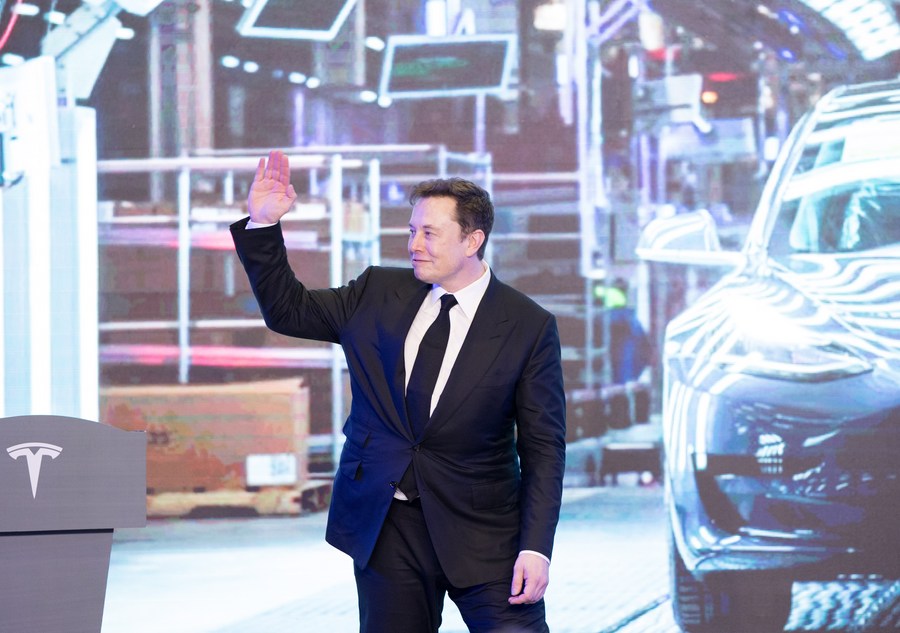Chinese Netizens Side-Eye Elon Musk’s Work Philosophy

In the 19th century, social justice reformers had a famous rallying cry: ‘eight hours’ labor, eight hours’ recreation, eight hours’ rest.’ In the 21st century, there is no reason to go backwards.
When Elon Musk, the richest man in the world with a net worth of $203 billion, completed his acquisition of Twitter at a cool $44 billion on October 27, his business empire expanded to the field of social media.
In his first week as chief executive, Musk moved quickly to put his mark on the firm. The reforms he is contemplating include plans to charge Twitter users a monthly fee of $8 for verified accounts as well as job cuts. On October 20, The Washington Post reported Musk intended to “gut Twitter’s workforce,” with a first round of cuts possibly affecting 25 percent of the company’s staff. Controversy ensued.
But on the other side of the Pacific, an additional Twitter-related news snippet inspired widespread concern and discussion among Chinese netizens: According to CNBC on October 31, Twitter management had asked some employees to work 12 hours a day, seven days a week, without specifying overtime pay; some employees already complained to The New York Times they had to sleep in the office on weekends to complete their assigned tasks.
Lest we forget, in a late-August 2021 decision, China’s top judicial authority, the Supreme People’s Court, ruled one of the country’s most infamous work practices—the “996” culture or a system in which employees report to work from 9 a.m. to 9 p.m., six days per week—illegal.
Most Chinese people assume Americans go by the “family comes first” credo and the purpose of working is to create a better life for themselves and their families, not to descend into endless overtime.

According to the Better Life Index released by the Organization for Economic Cooperation and Development (OECD) on March 9, 2020, the U.S. ranks at the bottom of the developed world in terms of work-life balance. The country’s full-time employees devote on average 61 percent, or 14.6 hours, of their day to personal care (eating, sleeping, etc.) and leisure (socializing with friends and family, hobbies, etc.)—less than the OECD average of 15 hours.
On the other hand, the U.S. is a country that has always prided itself on its entrepreneurial spirit and does have its fair share of workaholics. Musk undoubtedly falls into this category. On November 26, 2018, he tweeted: “There are way easier places to work, but nobody ever changed the world on 40 hours a week.” He proceeded by suggesting changing the world requires working 80 to 100 hours a week. He has repeatedly said he works 120 hours a week.
But the tycoon doesn’t just apply this philosophy to himself; Musk has infamously introduced it into his own companies. He has also publicly praised Chinese workers for working until 3 a.m. After a record 83,135 electric vehicles rolled off the production lines at Tesla’s Shanghai Gigafactory in September, Musk announced on November 1 Tesla would be dispatching about 200 of its employees from China to the U.S. in order to retool its old factory in Fremont, California, for the increasingly complex production tasks it faces.
Perhaps Musk should have a serious conversation with his Chinese employees to understand their real situation and life longings. The reason they work so hard is to ensure their businesses outperform counterparts amid cutthroat competition and, equally important, their extra hours at work receive financial compensation. But the younger generations, born in a more materially affluent era, seek to strike a work-life balance. Perhaps Musk should also take note from the 2019 controversy involving founder of e-commerce giant Alibaba and former richest man in China Jack Ma. That year, Ma was heavily criticized for endorsing the 996 culture, stating on social media that employees who worked longer hours would gain the “blessings of hard work.” Ma’s public image took a hit and never fully recovered.
Known for his wealth, outsized claims and ambitious goals, Musk has the power to change the world, but encouraging employees to work overtime with no word of overtime payment just yet may result in him overplaying his hand.
In the 19th century, social justice reformers had a famous rallying cry: “eight hours’ labor, eight hours’ recreation, eight hours’ rest.” In the 21st century, there is no reason to go backwards. Perhaps Musk should realize that today, everybody has the right to set their own priorities.
 Facebook
Facebook
 Twitter
Twitter
 Linkedin
Linkedin
 Google +
Google +










